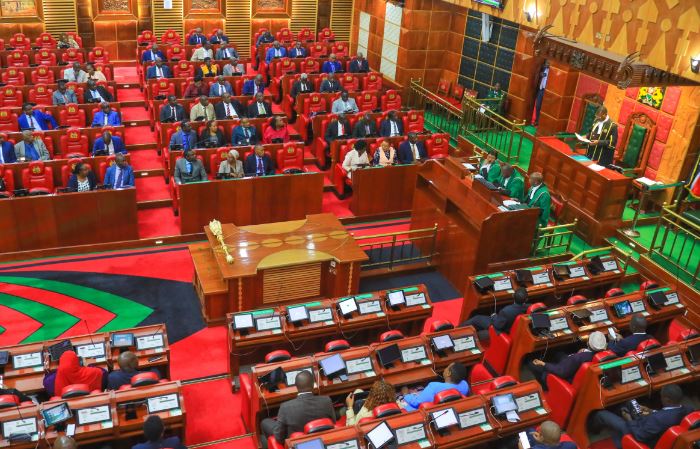

Parliament had a packed and eventful week, with major developments unfolding in both the National Assembly and the Senate.
In a landmark decision, the National Assembly approved Sessional Paper No. 2 of 2025, which sets the policy framework for the privatisation of the Kenya Pipeline Company (KPC) Limited.
The move follows the adoption of a joint report by the Departmental Committee on Energy and the Select Committee on Public Debt and Privatisation.
The report examined the proposed privatisation of KPC, a strategic state corporation that plays a critical role in petroleum transportation and storage across Kenya and its neighbouring countries.
The House adopted a key policy resolution supporting the privatisation, paving the way for the implementation of government plans to reduce state participation in commercial enterprises.
Debate is also expected to continue in the coming weeks on the Privatisation Bill 2025, which will provide the necessary legal framework to facilitate such transactions.
Amid this legislative progress, the National Assembly took a dramatic turn, adjourning regular business to deliberate on the rising wave of femicide and gender-based violence (GBV) across the country.
Citing Standing Order 33(1), Samburu West MP Naisula Lesuuda tabled an urgent motion seeking to address what she described as a “national crisis” that has left women and children dangerously vulnerable.
“In recent months, we have witnessed horrific incidents where women and children have been brutalised, maimed, and killed,” said Lesuuda, referencing the defilement of a 16-year-old girl in Kakamega and instances where children were murdered by their fathers in Bomet and Tana River.
She condemned systemic failures in the justice system, pointing to mishandled evidence, delayed investigations, and weak prosecutions that have allowed perpetrators to act with impunity.
Her concerns were strongly echoed by Gilgil MP Martha Wangari, who insisted the issue transcends legislation and cuts into the heart of enforcement and protection of constitutional rights.
“It is unacceptable that children and women are unsafe in their homes, schools, and communities. Parliament must lead in finding lasting solutions,” she affirmed.
Meanwhile, in the Senate, investigations into the collapse of the Technical University of Kenya Staff Retirement Benefits Scheme (TUKSRBS) intensified.
The Senate Committee on Labour and Social Welfare, chaired by West Pokot Senator Julius Murgor, took a firm stance against submissions from mid-level representatives of the scheme’s administrator, custodian bank, and fund manager.
Refusing to accept delegated representation, the committee invoked constitutional powers to compel the personal appearance of the chief executives of the implicated institutions.
This follows revelations from the September 25 sitting, where TUK Vice-Chancellor Prof Benedict Mutua and Retirement Benefits Authority (RBA) CEO Charles Machira disclosed that Sh244 million in staff deductions between 2009 and 2013 had never been deposited into the registered scheme.
Citing the high financial stakes and established precedents, senators insisted on direct accountability from top-level officials.















